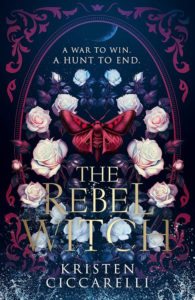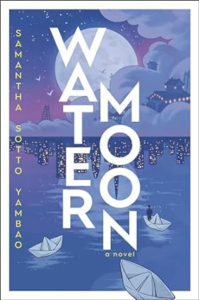The Ephemeral Reflections of Choice and Regret in Samantha Sotto Yambao’s Water Moon

Samantha Sotto Yambao’s Water Moon is a shimmering tapestry woven with threads of magical realism, familial bonds, and the profound weight of human choices. Set in a Tokyo where a hidden pawnshop deals not in material possessions but in life’s regrets, the novel invites readers into a dreamlike realm where the past is fluid and the consequences of decisions ripple through the present. Through the eyes of Hana Ishikawa, the inheritor of this extraordinary shop, Yambao crafts a poignant exploration of loss, destiny, and the elusive nature of what we truly desire – the “water moon” that forever seems just out of reach.
A Pawnshop of Regrets and a World Beyond the Ordinary
The central conceit of the pawnshop itself is a masterstroke of imaginative world-building. Accessible only to the lost, it exists in the liminal space between a bustling ramen restaurant and a reality where choices can be traded and regrets bartered. This unique setting immediately establishes a sense of wonder and mystery, suggesting that the mundane world holds hidden depths accessible to those who are open to them. Hana’s inheritance of this peculiar establishment thrusts her into a world she barely understands, forcing her to confront not only the legacy of her enigmatic father but also the intangible burdens carried by the shop’s clientele.
Magical Realism as a Lens for Emotional Truths
Yambao skillfully employs magical realism to explore the emotional landscape of her characters. The regrets traded in the pawnshop manifest in tangible forms, imbued with the lingering essence of their former owners. This allows for a visceral engagement with the abstract concept of regret, transforming it from a mere feeling into a palpable object with a story to tell. The narrative further blurs the lines between reality and the fantastical through elements like paper cranes that carry passengers and rain puddles that serve as portals, creating an atmosphere where the impossible feels intimately real.
Hana’s Journey of Self-Discovery and Unexpected Connections
At its heart, Water Moon is a journey of self-discovery for Hana. Thrust into the search for her missing father and a stolen, precious choice, she is forced to navigate the intricate workings of the magical world and, more importantly, confront her own past and the choices that have shaped her. The unexpected arrival of Kei, a charming physicist from the “ordinary” world, adds another layer to Hana’s journey. His scientific perspective offers a counterpoint to the magical realm, yet he too is drawn into its mysteries, highlighting the universal human experience of grappling with fate and free will.
The Interplay of Contrasting Worlds and Budding Relationships
The relationship between Hana and Kei forms a delicate and intriguing thread throughout the narrative. Their contrasting worldviews and burgeoning connection serve as a catalyst for both characters to question their beliefs and understand the complexities of choice and consequence. Their journey together, filled with surreal encounters and perilous situations, underscores the idea that even in the most fantastical settings, human connection and the search for meaning remain fundamental.
Lyrical Prose and Cultural Resonance
Yambao’s prose is lyrical and evocative, painting vivid pictures of the otherworldly locations and the emotional states of her characters. The narrative seamlessly blends moments of quiet introspection with thrilling adventure, mirroring the ebb and flow of life itself, where moments of reflection often precede decisive action. The introduction of Japanese cultural elements, such as the concept of ikigai (a reason for being), adds depth and resonance to the themes explored in the novel, grounding the fantastical elements in a rich cultural context.
The Enduring Weight of Choice and the Elusive Nature of Desire
Ultimately, Water Moon is a meditation on the weight of our choices and the enduring power of regret. It suggests that while we cannot undo the past, understanding and accepting our regrets can be a pathway to healing and self-acceptance. The elusive “water moon” that the characters yearn for symbolizes the intangible desires that often drive our actions and shape our lives. The novel gently reminds us that while these desires may sometimes feel perpetually out of reach, the journey of seeking them, and the choices we make along the way, are what truly define us.
A Lasting Reflection on Life’s Ephemeral Desires
In conclusion, Samantha Sotto Yambao’s Water Moon is a captivating and thought-provoking novel that transcends the boundaries of genre. Its enchanting blend of magical realism, compelling characters, and profound exploration of universal themes makes it a memorable and resonant read. Like the ephemeral reflection of the moon on water, the novel lingers in the reader’s mind long after the final page, prompting reflection on the choices that define our lives and the delicate dance between destiny and free will.










